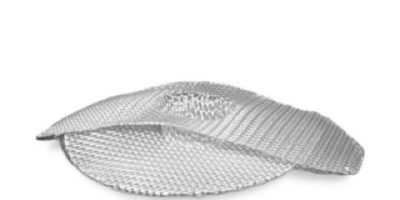Hernia Mesh: Complications, Recalls & FDA Safety Warnings
Hernia mesh is a medical device used to repair hernias and prevent them from coming back. While it can help strengthen weak muscles, hernia mesh carries risks like chronic pain, infection and mesh movement, leading to lawsuits and FDA scrutiny.
- Legally reviewed by Cassandra L. Sundblad, Esquire
- Last update: May 20, 2025
What Is Hernia Mesh?
Hernia mesh is a medical device used in surgery to fix hernias, which occur when an organ pushes through a weak spot in the muscle. The mesh offers support to reduce the chance of the hernia returning and can speed up the recovery process. However, it comes with both benefits and risks.
- Non-Absorbable Mesh
- This mesh stays in the body for the long haul, providing ongoing support.
- Absorbable Mesh
- This type dissolves over time, allowing the body to heal by forming new tissue in its place.
- Synthetic Mesh
- Made from man-made materials, either absorbable or non-absorbable.
- Animal-Derived Mesh
- Absorbable mesh made from pig or cow tissue, designed for temporary use.
While hernia mesh can help prevent recurrence, it can also lead to complications such as pain, infection, tissue damage or mesh migration. Discuss your options with your doctor to choose the best solution.
Why Do Doctors Use Hernia Mesh?
Doctors often use hernia mesh because it can help strengthen the area and reduce the chances of the hernia returning. Most hernia surgeries in the U.S. involve this mesh because studies show it can minimize hernia recurrence.
In the United States, around 1.6 million hernia surgeries occur annually, according to the American College of Surgeons. That breaks down to more than 4,000 hernia surgeries per day. Most of these surgeries — over 80% — use hernia mesh.
Using mesh can make the surgery faster and help patients recover more quickly. However, it may not be the right choice for everyone.
Hernia Mesh Complications & Risks
The U.S. Food and Drug Administration (FDA) has closely examined reports of hernia mesh problems since the early 2000s and compiled a list of the most common complications.
- Additional surgery
- Adhesions — scar-like tissue that forms between surfaces inside the body, causing them to stick together
- Disability
- Hernia
- Infection
- Inflammation
- Injury
- Pain
- Nausea
- Tissue injuries
After reviewing records related to different types of hernia surgeries — specifically inguinal, ventral, incisional, hiatal, umbilical and others — the FDA found over 55,000 reports of problems following hernia mesh surgeries.
Notably, around 60% of these reports were about ventral or incisional hernia surgeries, even though these two types combined make up less than 20% of hernia surgeries.
How Mesh Fails
Hernia mesh can sometimes fail for different reasons, such as the body having a bad reaction or the mesh wearing out or shifting. Issues from failing mesh can range from minor discomfort to serious health problems that affect daily life. Understanding these potential failures can help patients make informed decisions about their hernia repairs.
- Mesh Migration
- The mesh can move from its original position, causing pain, infection, bowel obstruction and other issues.
- Mesh Shrinkage (Contraction)
- Over time, some mesh types shrink, leading to tension on surrounding tissues and possible hernia recurrence.
- Infection and Rejection
- The body may react negatively to the mesh, leading to infections or the immune system rejecting the material.
- Bowel Adhesion or Obstruction
- Some mesh types can stick to nearby organs, causing blockages or fistula formation.
- Hernia Recurrence
- If the mesh weakens or doesn’t integrate properly, the hernia can return, potentially requiring additional surgery.
When hernia mesh doesn’t work correctly, it can cause serious health issues, such as ongoing pain, infections or problems with digestion. Some people may have mild complications, but others might need further surgery to fix or remove the mesh.
Who’s at Risk?
Some people are more likely to have problems after hernia mesh surgery due to their health and lifestyle. A 2024 study in Cureus found that being overweight and having certain medical conditions can lead to issues like infections or slow healing.
While men are more prone to hernias, gender doesn’t greatly affect the risk of hernia mesh complications. Recognizing who is at higher risk can help patients and doctors improve surgery outcomes.
- Obesity:
- High body mass index (BMI) increases the risk of infection, wound healing problems and hernia recurrence.
- Diabetes:
- This condition can lead to slow wound healing and a greater chance of infection.
- Smoking:
- Although not statistically confirmed in all studies, smoking generally has links to higher surgical risks.
For those at higher risk, doctors may recommend lifestyle changes, close monitoring or alternative treatments to improve recovery and reduce complications.
Hernia Mesh Recalls
Faulty hernia mesh products have caused serious health concerns, from infections to device failures. Manufacturers recalled mesh for defects, contamination or even counterfeiting. These problems led to major actions by the FDA and manufacturers, as well as hernia mesh lawsuits.
| MANUFACTURER | BRAND | RECALL DATE | REASON |
|---|---|---|---|
| Ethicon | Proceed Surgical Mesh (18,270 units) | Dec. 2005 | Coating separated from mesh, increasing the risk of adhesion |
| Ethicon | Prolene Polypropylene Mesh (365 boxes) | Nov. 2003 | Counterfeit products found in the market |
| Atrium | C-QUR Mesh (1,500 units) | July 2013 | Inadequate storage instructions leading to safety concerns |
| Bard (C.R. Bard) | Composix Kugel Patch (more than 131,451units) | Dec. 2005 | Device failure leading to the risk of serious injury |
The FDA monitors the safety of hernia mesh products by reviewing reports of problems from manufacturers, hospitals, doctors and patients. They aim to provide clear information about these devices and quickly correct any errors in the data. The FDA also ensures that manufacturers follow the rules for reporting issues accurately and on time.
Hernia Mesh Lawsuits & FDA Warnings
Thousands of people have filed hernia mesh lawsuits claiming that mesh implants caused severe complications, including chronic pain, infections and mesh migration. The FDA has issued warnings and continues to monitor reports of mesh-related problems.
Understanding the risks and knowing your rights can help protect your health.
FDA Oversight and Monitoring of Hernia Mesh
The FDA continuously monitors adverse event reports of hernia mesh products. These reports come from manufacturers, hospitals, doctors and patients. It’s important to ask your doctor questions before and after hernia mesh surgery and report any complications to your health care providers and the FDA.
The FDA recommends that patients discuss their hernia repair options with their surgeon, including surgical and non-surgical methods and whether they will use mesh. Patients should inquire about the type of hernia, the mesh details and potential risks, like recurrence and infection.
- Ask for detailed information about the mesh before surgery.
- Keep records of the mesh manufacturer, brand and Unique Device Identifier number (UDI) for future reference.
- Know your hernia type and available repair options.
- Understand the risks and benefits of mesh versus non-mesh repair.
It’s important to know potential risks and how to respond. If you suspect an issue with your hernia mesh, gather key information like the product name and manufacturer. This can help you address problems and contribute to overall health and safety.
- Be aware of potential complications like chronic pain, infection and mesh migration.
- Report any adverse events to the FDA through the MedWatch program.
- Include detailed information, like the mesh brand and surgical details, when reporting problems.
If you face any issues after your hernia repair, contact your surgeon for help. In addition, reporting problems to the FDA can improve device safety for everyone. Staying informed will help you manage your health better after surgery.
Hernia Mesh Lawsuits
Attorneys have filed thousands of hernia mesh lawsuits since the early 2000s, claiming the devices caused severe complications. The U.S. Judicial Panel on Multidistrict Litigation has combined many of these into multidistrict litigations (MDLs). An MDL allows courts to combine several lawsuits with similar injuries against a specific product as a single litigation to speed up the legal process.
As of June 2025, there were a total of 26,474 hernia mesh lawsuits still pending in multiple multidistrict litigations.
- Atrium MDL No. 2753:
- 403 cases pending
- Ethicon MDL No. 2782:
- 9 cases pending
- Davol, Inc./C.R. Bard, Inc. No. MDL 2846:
- 24,074 cases pending
- Covidien MDL No. 3029:
- 1,988 cases pending
One of the earliest hernia mesh MDLs was over Bard Davol’s Kugel Patch. A federal panel combined 13 cases into an MDL in 2007. The lawsuits claimed defects and problems with the company’s hernia mesh design, manufacturing, safety, testing, marketing and performance. Bard Davol manufactured the faulty patches between 2001 and 2006.
Eventually, attorneys filed more than 2,200 lawsuits in the Kugel Patch MDL. The judge closed the multidistrict litigation in 2017, six years after C.R. Bard agreed to pay $184 million to settle the Kugel Patch lawsuits.
What to Do if You Have Hernia Mesh Complications
If you’re experiencing complications from hernia mesh, it’s important to know your options and get the right care. Mesh removal can help relieve symptoms like chronic pain or infection, but it’s a complex procedure with risks.
Non-mesh repair techniques may be an option for some patients, especially those with simpler hernias or infections. Connecting with support groups and reliable resources can also make a difference in your recovery journey.
Mesh Removal
Hernia mesh removal is a complex surgical procedure typically considered when patients experience complications such as chronic pain, infection or mesh failure. Before the surgery, doctors check the mesh’s location, whether there’s an infection and how surgeons originally applied it — either through a large or small incision.
- Compressed nerves
- Local infection
- Erosion or adhesion to organs
- Mesh displacement or migration
- Chronic pain near the mesh site
Surgeons often use imaging tests, like CT scans, to see if the mesh has shifted or is affecting nearby organs. The method chosen for removal will vary based on the original surgery method and the type of mesh used.
- Laparoscopic Removal: This is minimally invasive, but about 21.7% of patients experience hernia recurrence in 4.3 years, with almost 9% needing another surgery, according to a 2024 observational study in Surgical Endoscopy.
- Open Removal: Surgeons use a large surgical opening for complicated cases, like when mesh has eroded into organs.
- Hybrid Techniques: These combine methods or use biological patches when needed.
If you want to remove your hernia mesh, it’s important to talk with your doctor or surgeon about the risks. These include the possibility of the hernia returning, adhesions, numbness and injury to blood vessels or major organs.
Alternatives to Mesh
Non-mesh hernia repair is an option for patients who want to avoid mesh-related issues. It’s beneficial for simple hernias or when infections are present. Surgeons use various methods to strengthen the abdominal wall without mesh, either by reducing tension on tissues or by suturing the hernia closed.
- Bassini Repair: This technique uses your tissue and muscle to reinforce the inguinal canal.
- Modified Bassini: This process involves carefully tying off the hernia sac and rebuilding the support structure in the groin area.
- Shouldice Repair: This procedure involves taking out a muscle called the cremaster and then stitching up the area in two layers for better support and healing.
- Marcy Repair: This technique seals the inner opening using a supportive layer of tissue.
- Desarda Repair: This procedure involves using a strip of tough tissue from the side of the abdomen to help support the area around the inguinal canal, which is a passage in the lower abdomen.
Online Resources for People With Hernia Mesh Injuries
Getting support and trustworthy information can be helpful if you’ve suffered a hernia mesh injury. Here are some resources in the U.S. that can connect you with others in similar situations and provide guidance:
United Ostomy Associations of America (UOAA)
- The UOAA offers a Support Group Finder to find local and virtual support groups across the U.S. for people dealing with surgical complications, including hernia mesh injuries.
The Bariatric and Hernia Institute
- The Institute hosts virtual monthly support groups for patients recovering from hernia surgery. Contact them directly for details.
American Hernia Society
- This professional organization offers resources and education related to hernia repair and complications.
Calling this number connects you with a Drugwatch.com representative. We will direct you to one of our trusted legal partners for a free case review.
Drugwatch.com's trusted legal partners support the organization's mission to keep people safe from dangerous drugs and medical devices. For more information, visit our partners page.







